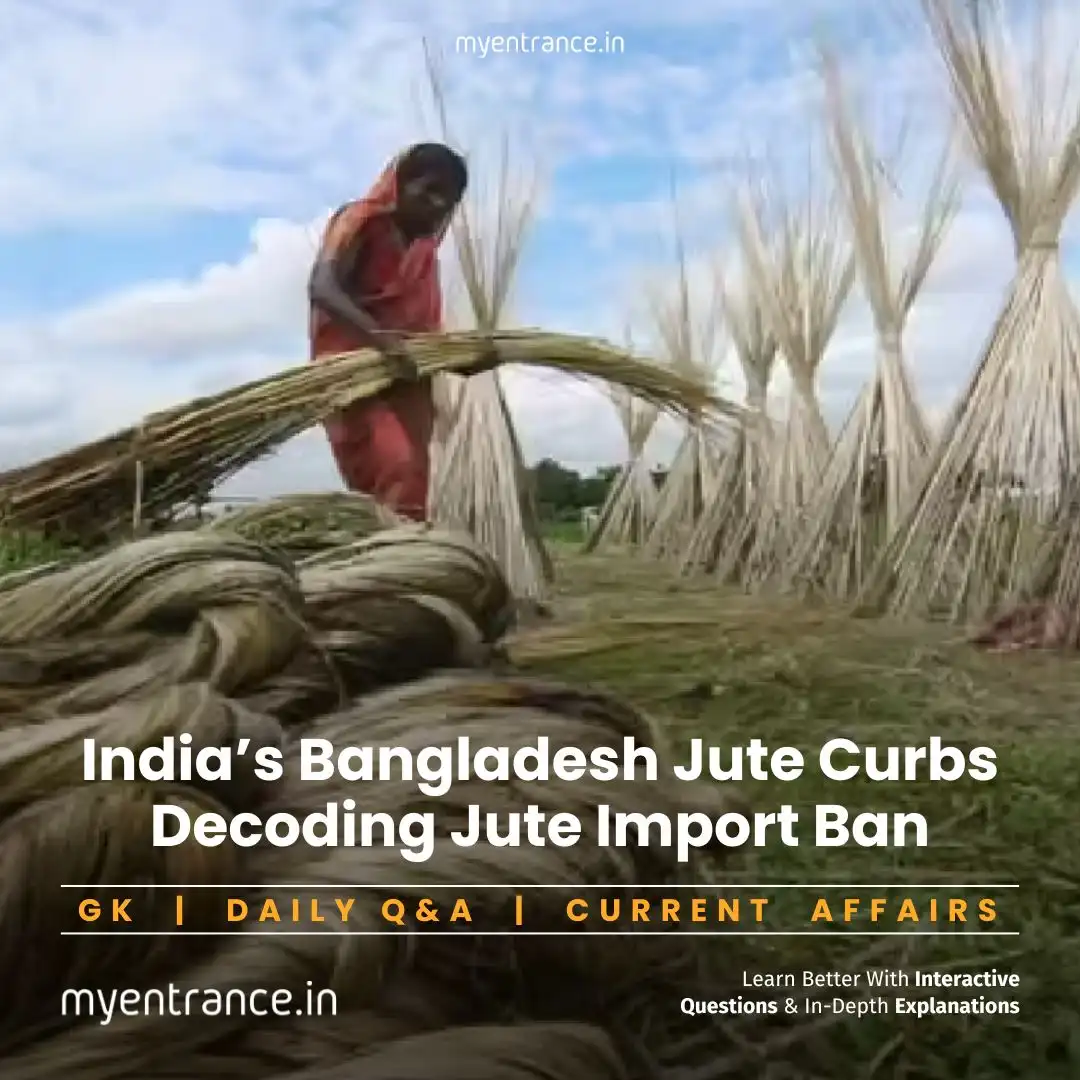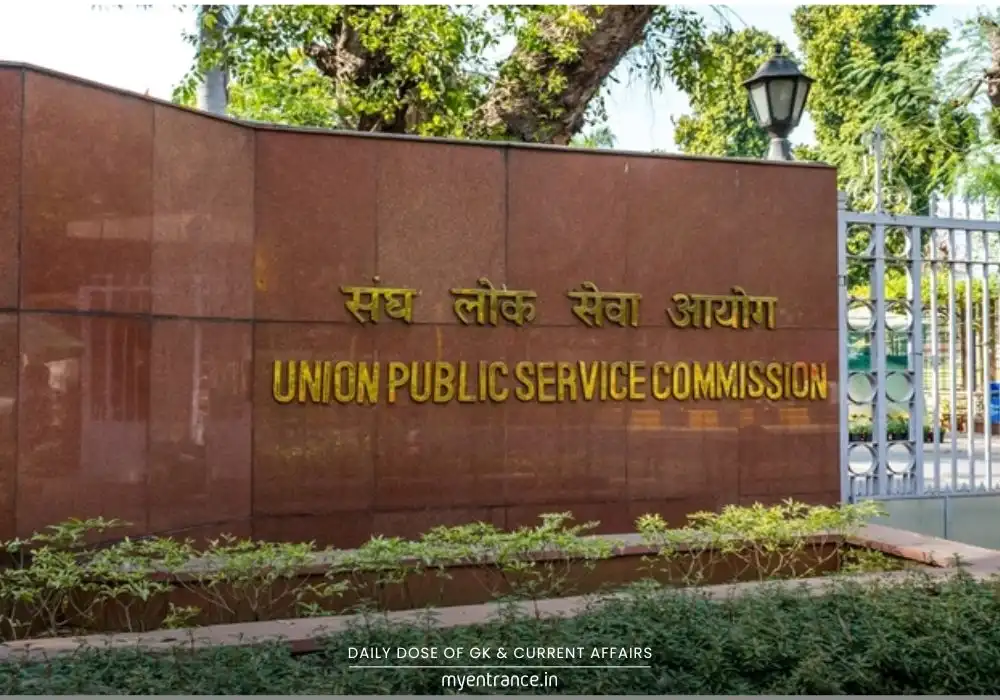Select Language
India’s Bangladesh Jute Curbs: How the Bangladesh Jute Ban Ties into Your GK Prep
This complete guide simplifies India’s jute trade clash with Bangladesh—key for GK sections! Discover easy preparation tips and why myentrance.in is the best site to learn exam-critical updates.

India recently banned jute imports from Bangladesh via land routes, allowing entry only through Mumbai’s Nhava Sheva port. This isn’t just a trade move—it’s a layered story involving geopolitics, unfair practices, and India’s domestic jute crisis.
Here’s the breakdown:
Geopolitical Angle: Bangladesh’s growing closeness to China strained its ties with India, influencing trade decisions.
Trade Malpractices: Bangladeshi exporters dodged anti-dumping duties (ADD) by misdeclaring goods, using fake exemptions, and flooding India with subsidized jute.
Farmers & Mills Suffer: Cheap imports crashed Indian jute prices (below ₹5,000/quintal vs. govt’s ₹5,335 MSP). Six mills shut down, leaving ₹1,400 crore in unpaid dues.
Failed Safeguards: Despite ADD, imports rose from $117M (2022) to $144M (2024), proving duties alone couldn’t counter Bangladesh’s state-backed export incentives.
Key Terms Simplified:
Anti-Dumping Duty (ADD): A tariff imposed to protect local industries from cheap, unfairly priced foreign goods.
Dumping: Selling products abroad below their domestic price or production cost.
WTO-Compliant Steps: India’s port restrictions align with global trade rules, exempting Bangladesh shipments to Nepal/Bhutan.
Why This Matters for Exams
Design entrances (UCEED, NID, NIFT) and UPSC test your grasp of current affairs and trade dynamics. This topic hits multiple zones:
Prelims: “National/International Importance” sections often feature trade policies.
Mains (GS-II): Covers bilateral relations, economic diplomacy, and WTO rules.
Interdisciplinary Links: Connects economics, agriculture, and geopolitics—perfect for analytical questions!
Sample Questions & Answers
Q: Why did India restrict jute imports from Bangladesh?
A: To counter dumping, export malpractices, and protect domestic farmers/mills amid Bangladesh’s growing China ties.
Q: What is ‘anti-dumping duty’?
A: A WTO-allowed tariff to prevent foreign players from flooding markets with artificially cheap goods.
Q: Which Indian law governs anti-dumping duties?
A: The Customs Tariff Act, 1975 (amended per WTO agreements).
Q: How does Bangladesh’s China proximity affect India?
A: It strains bilateral trust, influencing trade/security decisions in South Asia.
Q: Name one economic impact of Bangladesh’s jute exports on India.
A: Indian jute prices fell below MSP, causing mill closures and ₹1,400 crore in losses.
Most Predicted Questions
Comprehensive study materials, Expert-guided tips & tricks, Mock tests and instant results.
Start your SSC, NIFT, NID, FDDI, PSC journey today with MyEntrance, your ultimate online coaching platform.















